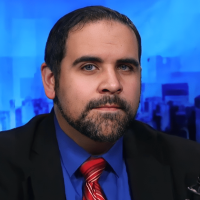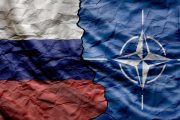On January 31, 1943, the German Sixth Army and other Axis forces under the command of Field Marshal Friedrich Paulus officially surrendered to Soviet Red Army forces, officially ending the pivotal battle two days later. The German objective was to capture the city, which was located in southern Russia. A German victory would have come as a humiliating blow to the Soviet Union and the city’s namesake Joseph Stalin.
The battle was that of Stalingrad, regarded as one the deadliest in the history of warfare, with roughly 1.5 million casualties.
Seventy years later, on January 31, 2013, the city, renamed Volgograd in 1961, passed a measure by its city council to rename the city Stalingrad, in commemoration of the battle.
The city’s renaming will be temporary but on a permanent basis. That is, all city measures or mayoral proclamations will officially bear the name Stalingrad on May 9 and on four other days. May 9 is celebrated as Victory Day, in commemoration of the USSR’s victory over Nazi Germany.
While the city’s name change will apply only on dates related to the commemoration of significant World War II events, it does, however, correspond to the recent trend of glorifying the former Soviet dictator.
Though Stalin killed millions of Russians and Ukrainians, in 2008, an online nationwide poll — which included over 50 million votes — named Stalin as the third most popular Russian who ever lived. Another poll commissioned by VTsIOM in 2011 revealed that 45 percent of Russians were opposed to the destalinization programs. “Stalin … is a symbol of authority: harsh and brutal, but patriotic and non-corrupt,” said Alexei Makarkin, deputy director of the Center of Political Technologies, one of Russia’s oldest political think-tanks.
Last year Russian department stores began selling student composition notebooks bearing a portrait of Stalin on the cover. In Moscow, city officials received complaints from some after it placed Stalin’s face on the side of public city buses.
Volgograd’s name change to Stalingrad has also encountered some opposition.
Russian human rights official Vladimir Lukin was sharply critical, declaring to Russia’s Interfax news agency, “This is an insult of the memory of those who died.”
Nikolai Levichev, a senior federal lawmaker with the democratic-socialist party, A Just Russia, also voiced his opposition: “It’s blasphemous to rename the great Russian city after a bloody tyrant who killed millions of his fellow citizens.” Levichev went on to say that the country won the war “despite rather than thanks to” the leadership of Stalin.
Stalin’s name is synonymous with gulag concentration camps and the communists’ brutal repression of Soviet citizens that lasted throughout his reign. He was directly responsible for the deaths of nearly 30 million of his own people, including 7-10 million during the Ukrainian Holodomor (genocide by famine) during 1932-33.
Although there are many Russians who despise the former Soviet dictator, there are still many others who adore him, particular the youth and members of the Communist Party of the Russian Federation (CPRF).
The CPRF, one of the official successors to the Communist Party of the Soviet Union (CPSU), is the second largest political party in Russia, second only to the ruling United Russia, led by Russian President Vladimir Putin and Prime Minister Dmitry Medvedev.
The city of Volgograd, or Stalingrad, has one of the most active communist parties in the country. In 2007, Communist Party candidate Roman Grebennikov was elected city mayor.
The city’s current mayor, Valeriy Vasilkov, though a member of Putin’s United Russia, is nevertheless also supportive of the city’s rename back to that of the Communist Party dictator.
In a statement, the CPRF said the name change is a significant half-step. They have, in the past, sent a letter to the United Russia-dominated Duma (national parliament) and President Putin asking that the city be renamed Stalingrad once and for all.
Although United Russia has not made any plans to permanently rename the city Stalingrad, the change does mark the resurgence of the former communist dictator’s cult of personality.
Photo of Josef Stalin (in uniform), with China’s Mao Tse-tung





